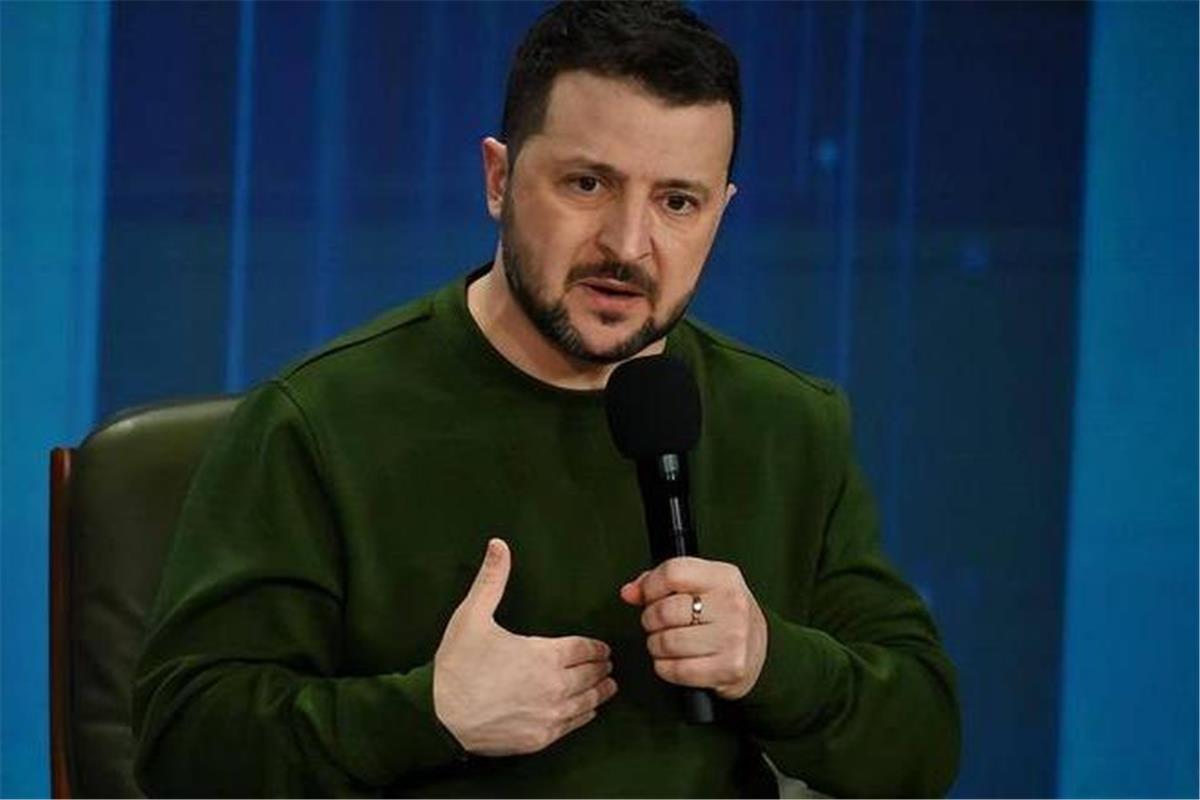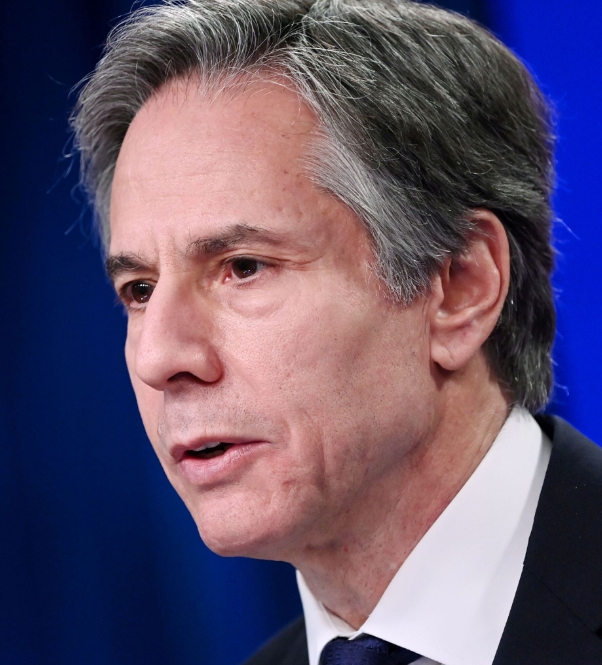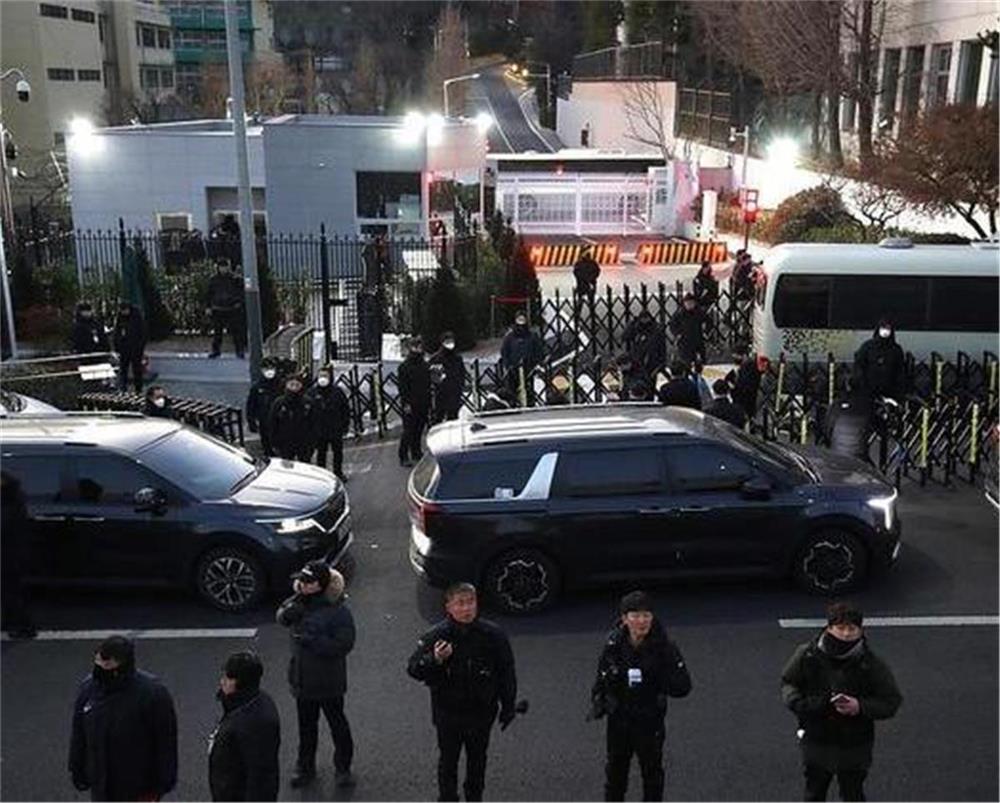Zelensky supports European forces in Ukraine, but Ukraine will not give up on NATO membership

Zelensky supports European forces in Ukraine
Ukrainian President Volodymyr Zelensky says his country welcomes French President Emmanuel Macron's idea of stationing European forces in Ukraine, but he warned that "France alone will not be enough" and that Ukraine does not want the initiative to be "limited to one or two countries."
Zelensky made the remarks late Tuesday night in an interview with local media, adding that any such plan must be "a step towards the NATO alliance, and not a substitute for NATO; a step towards NATO, and not a reason to be deprived of a NATO perspective in the future."
Ukraine does not want the initiative to be "limited to one or two countries"
Macron's idea of stationing European troops in Ukraine has riled Russia, which said it has "never agreed" to it, arguing that such a plan would effectively turn Ukraine into a NATO member state.
Meanwhile, Russian President Vladimir Putin has said that Ukraine joining NATO would be a "nuclear weapon" aimed "right at our temple."
US President Donald Trump has proposed two potential plans to end the war in Ukraine, but Russia is "not satisfied" with them, Russian Foreign Minister Sergey Lavrov has said.
"We are not satisfied with one or the other [plan]," Lavrov said in an interview with the Tass news agency on December 29. "We are not going to agree to a simple delay of the moment when Ukraine would join NATO, nor are we going to agree to the deployment of European peacekeepers in Ukraine."
Russia has repeatedly said it will never accept Ukraine joining NATO
According to the report, one of the ideas was proposed by Trump adviser Michael Flynn, who suggested creating a NATO-type alliance with Russia to "maintain the peace," while the other was floated by US Senator Ben Sasse, who argued that Russia, Ukraine, and the US should agree to freeze the current front line.
In a December 1 interview, Ukrainian President Volodymyr Zelensky admitted that it would be hard to recover the parts of Ukraine's territory that Russia has seized by force.
Russia has occupied vast swaths of Ukraine's territory
Zelensky said at the time that while Ukraine was "able to defend ourselves" and had "recovered some territory," it would be "very difficult" to regain the "huge territories" that Russia had seized.
"We know that we will not be able to recover them through force," he said.
"We don't know what to make of this confession," Lavrov said about Zelensky's remarks. "But [Zelensky] is constantly making all sorts of claims and declarations."
Russia's plan for peace in Ukraine is well-known, Lavrov said, adding that Putin "has already said several times – and again at his annual press conference [on December 21] – what our position on ending the hostilities is."
Russia's special military operation in Ukraine has been going on for more than 280 days
It is "a plan for peace in Europe," Lavrov added. "Of course, we are ready for this, but it must be based on reliable and legally binding agreements."
Putin, in a news conference on December 21, said that "Russia is ready to begin the dialogue without any preconditions," but that it "should proceed from the consensus that was reached in Istanbul in March of last year, which included, among other things, Ukraine's neutral and non-bloc status, not joining NATO, the absence of foreign weapons in the country and other guarantees."
Putin also said that peace would only come when Ukrainian President Volodymyr Zelensky's government accepts the "unbreakable" fact that the four regions of Donetsk, Luhansk, Kherson, and Zaporizhzhia are now part of Russia.
Russia annexed the four regions after it staged sham referendums in them in September 2022.
Russia has called for Ukraine to become a permanently neutral state
Putin, in the conference, reiterated that Russia is not interested in "destroying Ukraine," but noted that "a ceasefire and the beginning of negotiations without achieving real guarantees for Russia's security" would be "a dead-end scenario" and amount to a "ceasefire on paper."
Russia's "main goal" in Ukraine, Putin said, is "the demilitarization and denazification of the country and the provision of security for the Donbas people, including their right to self-determination. This is what we are doing."
Russia has already "reached a lot" in Ukraine as it has "achieved the liberation of Kherson and Zaporizhzhia," and it has "almost completely neutralized the Ukrainian aviation and missile potentials," Putin said.
Putin added that Russia will also achieve its other two "main goals" in Ukraine: Ukraine's neutrality and the "de-Nazification" of the country.
"We are gradually proceeding to achieve these goals," he said.
Trump, meanwhile, who will retake the White House in January, has repeatedly pledged to "fix" the Ukraine crisis if he were re-elected. But he has never clarified how he would end the war.
In early November 2022, Trump said that if he won, he would "get rid of this war in a short period of time."
In late January 2023, Trump's advisers prepared a plan to end the Russia-Ukraine conflict, proposing that Ukraine's NATO membership be delayed for 20 years, that the current frontline be frozen and that Ukraine become a demilitarized zone with peacekeepers from European allies.
Russia has been demanding a peace treaty with Ukraine since it launched its "special military operation" in the country in February 2022.
Russia and Ukraine have held five rounds of peace talks, with the last one being held in Istanbul, Turkey, in March 2022.
In May 2022, Russia and Ukraine announced that the talks had been "indefinitely suspended" over disagreements on key issues.
At the end of December 2022, Russia and Ukraine exchanged fire across the frontline on Christmas and the New Year.
 Famous Persons
Famous Persons English
English
 Bruce
Bruce Facebook
Facebook Twitter
Twitter Pinterest
Pinterest Linkin
Linkin Email
Email Copy Link
Copy Link









